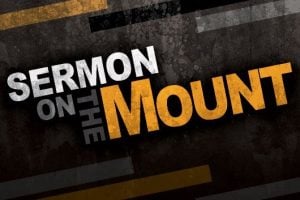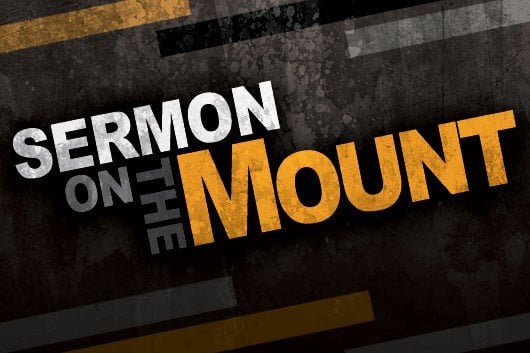⏱️ Estimated Reading Time: 8 min read
Editor’s note: The purpose of this series is to walk our readers through the Sermon on the Mount in Matthew 5-7 in order to help them understand what it teaches and how to apply it to our lives. This is our first such series here at Servants of Grace through an extended biblical passage and is part of our larger commitment to help Christians learn to read, interpret, reflect, and apply the Bible to their own lives.
- Dave opened the series by looking at Matthew 5:1-3.
- In the second post in this series, Dave explored Matthew 5:4.
- In the third post in this series, Zach looked at Matthew 5:5.
- In the fourth post in this series, Jason looked at Matthew 5:6.
- In the fifth post in this series, Dave looked at Matthew 5:7.
- Dave looked at Matthew 5:8.
- Dave looked at Matthew 5:9.
- Jason looked at Matthew 5:10-12.
- Dave wrote on Matthew 5:13-16.
- Mike Boling wrote on Matthew 5:17-20.
- Dave Dunham wrote on Matthew 5:21-26.
- Dave wrote on Matthew 5:27-30.
- Dave wrote on Matthew 5:31-32.
- Dave wrote on Matthew 5:33-37.
- Dave wrote on Matthew 5:38-42.
- Mike wrote on Matthew 5:43-48.
- Zach wrote on Matthew 6:1-4.
- Dave wrote on Matthew 6:5-8.
- Jason wrote on Matthew 6:9.
- Matt Adams wrote on Matthew 6:10.
- Dave wrote on Matthew 6:11.
- Dave wrote on Matthew 6:12, 14-15.
- David Dunham wrote on Matthew 6:13.
- Dave wrote on Matthew 6:16-18.
- Today Jason writes on Matthew 6:19-24.
**************************************************
 Matthew 6:19-24, “Do not lay up for yourselves treasures on earth, where moth and rust destroy and where thieves break in and steal, but lay up for yourselves treasures in heaven, where neither moth nor rust destroys and where thieves do no break in and steal. For where your treasure is, there your heart will be also. The eye is the lamp of the body. So if your eye is healthy, your whole body will be full of light, but if your eye is bad, your whole body will be full of darkness. If then the light in you is darkness, how great is the darkness! No one can serve two masters, for either he will hate the one and love the other, or he will be devoted to the one and despise the other. You cannot serve God and money.”
Matthew 6:19-24, “Do not lay up for yourselves treasures on earth, where moth and rust destroy and where thieves break in and steal, but lay up for yourselves treasures in heaven, where neither moth nor rust destroys and where thieves do no break in and steal. For where your treasure is, there your heart will be also. The eye is the lamp of the body. So if your eye is healthy, your whole body will be full of light, but if your eye is bad, your whole body will be full of darkness. If then the light in you is darkness, how great is the darkness! No one can serve two masters, for either he will hate the one and love the other, or he will be devoted to the one and despise the other. You cannot serve God and money.”
My oldest son gets giddy at the mere mention of the word treasure. Virtually everything he can find is a “treasure.” He likes to spend time outside in his “fort” (translation: a gathering of trees near the field behind our house). From rocks to sticks, and bugs to dirt, my boy is a treasure seeker.
Let’s be honest for moment. Aren’t we all treasure seekers? Just because his treasures seem to be things you and I wouldn’t prefer, that doesn’t mean we don’t have treasures…right? In fact, the truth is, our hearts have been designed by God to seek for treasure. The question is not, “Will we seek treasure?” The question is, “What treasure are we seeking?” There is no neutral ground. The heart’s longing is a characteristic of what God has designed it to do, namely, seek. In other words, when the heart chases after something it is merely functioning in accordance to its user manual, since it’s programmed to do this.
Lasting Treasure
Knowing what is in the heart of man (John. 2:24), Jesus anticipates this universal reality and includes it in His Sermon. That man will wage war against sin in his own heart is a given. But how does one combat these conflicting desires? Jesus gives the answer: lay up your treasures appropriately. Jesus doesn’t suggest we get rid of all desire, playing the game of the Stoics; instead, He teaches us to channel those longings. And it starts with who has the better storage plan.
The earth is plagued with sin. It touches every man in every faculty of his being; it touches the created order. Sin causes things to break down. Materials things? They rot away. Metal rusts, wood rots, and everything is subject to larceny. When we “lay up,” or more literally, “store away for later use” things, Jesus is not making war against Ziploc. He’s not against preserving food or planning for retirement. Jesus is against, in context, the hoarding of things in such a way as to try and get meaning, value, and significance out of them apart for God. Because Jesus cares about the heart, He cares about the whole person. Since He cares about the whole person, He knows what he or she does with his or her time on earth. This is why we should take the following statements seriously, “Stop valuing things on earth as if that’s all this life is about! Don’t think that all meaning, significance, and purpose is wrapped up solely in stuff. Let my love, my grace, my mercy, and my Lordship be more to you this stuff.”
Keep in mind that we’re not dualists here—valuing the spiritual over against the material. We await the resurrection of our bodies, too. But realize that heaven is eternal and entirely incorruptible (1 Peter 1:4); earth is plagued with sin and violence, and it is corruptible (Hebrews 1:11). The point Jesus is making is that idolatry is a problem. You can’t worship God while worshipping other things. As a result, we must commit ourselves to worshiping God with our stuff, not worship stuff as our god. Value the stuff that truly lasts.
Eyes and (No) Neutrality
Jesus continues to expand His teaching by reminding us that even our eyes are not neutral. Just like our hearts, our eyes can look at goodness, righteousness, and holiness, or they can look at sin, filth, and pollution. You can’t both look at something with the intent on serving God in purity, and look at something with the intent on serving it with unrighteousness.
Jesus tell us, “The eye is the lamp of the body” (vs. 22). In other words, our eyes are the lychnos of the body. The lynchnos was a small container with a wick that would actually light up the room when dark. The eye is the window to the soul. To mix metaphors, the eye is the gate, which leads to what’s inside.
The healthy eye looks to God, and God fills the soul with the radiance of His glory. The eye that is bad (literally, “evil, wicked”)—those idols that are gazed upon fill the heart with greed, lust, and envy. When we look at treasures, we can either see them as good gifts from God to enjoy, or mere material things from which we find meaning, value, purpose, and identity. There is no neutrality. Your eyes work in concert with your heart. What you see and what you look at will either lead your heart to worship of God, or worship of things. Which then leads to service of God, or service of things.
Which Master?
Our Lord goes on, “No one can serve two masters, for either he will hate the one and love the other, or he will be devoted to the one and despise the other. You cannot serve God and money” (Matthew 6:24).
Treasures, eyes, and service; do you see how this all works together? Tim Keller helpfully comments, “What the heart wants most the mind finds reasonable, the emotions find valuable, and the will finds doable.”[i] This has been an ongoing problem from the beginning.
Genesis 3:6-7a, “So when the woman [Eve] saw that the tree was good for food, and the it was a delight to the eyes, and that the tree was to be desired to make one wise, she took of its fruit and ate, and she also gave some to her husband who was with her, and he at. Then the eyes of both were opened, and they knew that they were naked.”
The apostle John says it this way in 1 John 2:15-17, “Do not love the world or the things in the world. If anyone loves the world, the love of the Father is not in him. For all that is in the world—the desires of the flesh and the desires of the eyes and pride of life—is not form the Father but is from the world. And the world is passing away along with its desires, but whoever does the will of God abides forever.”
No doubt the disciple that Jesus loved formulated these words with both the story of Adam and Eve in mind, as well as Jesus’ teaching here in the Sermon on the Mount. The danger is real: the heart longs to serve a master. It was designed by God to serve God. And yet in our sin and desires “of the flesh,” as John put it, we put those affections elsewhere. We shift from being servants of God who look to God with our eyes and treasure Him before everything else, to being servants of money and things who look to those things with our eyes and treasure them before God.
Which master will you serve? Which treasures will you store? Which set of things will you look at? Who will you look to?
The call of the gospel message is to turn from our sinful desires and put our faith in Christ as the all-satisfying treasure that surpasses all other treasures. Simply stated: you were created by God to worship God. And the reality is, He’s a much better master.
[i] https://twitter.com/timkellernyc/status/636176614511001600




